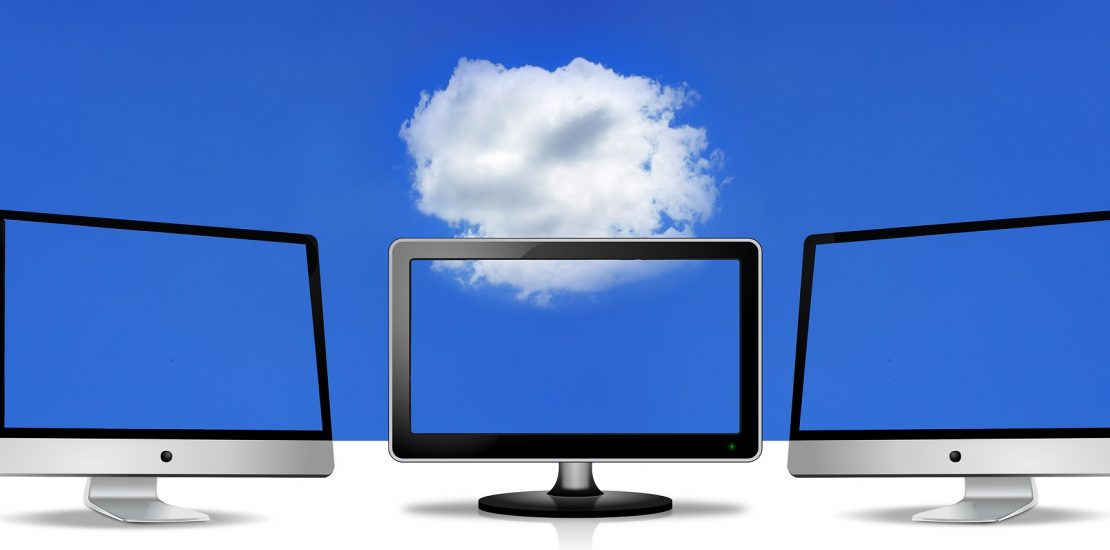What is Cloud Computing for Business?
- 30 July 2017
- Posted by:
- Category: Cloud

Cloud computing – what is it?
These days, most people have heard of cloud computingor, simply, “the cloud”. But many people still don’t quite understand what this means beyond a general awareness of it. In fact, we still see many people making blind assumptions that cloud computing has something to do with literal clouds. Or that our data is physically floating around way above our heads, similar to clouds.
There’s no shame in this. The term “cloud computing” is quite suggestive and, unless you were really interested, you probably wouldn’t question it too much.
But, as cloud computing becomes more and more integrated in our daily lives, it’s important to know what this really means for both you personally and your business. Where is your data really stored?
What is “The Cloud”
It’s a bit of an abstract term, that conjures up images of big, fluffy white clouds. “The Cloud” actually has nothing to do with the clouds that you’re probably thinking of.
Instead, it refers to software that runs on the internet rather than locally on your machine. When you upload your photos from your phone or digital camera to services such as Facebook, Instagram, or Dropbox, you are uploading to the cloud. Your data is physically somewhere—in one of many data centres around the world— but, instead of being on your machine, it’s on a server belonging to Facebook or Amazon or whoever.
You probably already use cloud computing in one way or another without even realising it
What is Software as a Service (SaaS)
Software as a Service (SaaS) describes a delivery model in which software is hosted by the software provider and licensed on a subscription basis. Typically, a user will pay a subscription fee (which can be weekly, monthly, annual, etc) based on usage parameters. This means that SaaS providers can set different price points depending on customers’ requirements for number of users, accounts, transactions, processors, capacity, features, and more.
Freemium pricing strategies are also popular with SaaS models, allowing free but limited usage of the application and charging for additional (or premium) features or services.
The two main types of SaaS are vertical and horizontal, where vertical SaaS describes software developed for use within a specific industry (e.g. finance, real estate, etc) and horizontal SaaS is designed for use across multiple industries (e.g. marketing, HR, etc).
How can Cloud Computing be used for Business?
As we become increasingly reliant on multiple devices, the ability to access our data and applications across these devices becomes critical.
Gone are the days where you’d have to make the most of your computer hard drive to store everything. Now we can store all our photos on Facebook, instead of them taking up space on your computer, or stream your music from services such as Spotify or Tidal instead of downloading the music files to your device. Instead of opening and editing documents on your hard drive or internal storage device, you can open them up in browser-based office software and edit and share them online.
One of the main benefits to this for businesses is scalability. For example: you don’t need to invest in a huge amount of storage space, but instead pay for storage as and when you need it. You have the flexibility to scale up or down as required, bringing down the overall cost. In fact, with SaaS, you can even have the flexibility to access files from anywhere on any internet-connected device and collaborate on files and projects with colleagues, to allow employees to work remotely and improve productivity. Popular SaaS providers for office applications include Google Apps and Microsoft 365, which are offered as a packaged subscription to a number of different products and cloud services. These cloud services can also replace your current IT solutions for things like email and file storage, with a wide range of choice to suit businesses. Cloud storage services that you may already be aware of include Google Drive, Dropbox, Apple iCloud, and Microsoft OneDrive.
Cloud hosting and cloud backup and cloud logging offer security and reliability as offsite solutions, reducing your business’ downtime if your onsite software or hardware fails as a result of failure, cyberattack, or damage. Having a cloud backup source means that you reduce the likelihood of data loss, and many services include automatic syncing and storage of data. This usually also covers things like email services and VOIP (voice over IP) telephone systems, so that your business is able to communicate over a web interface from any location across multiple devices – enabling improved customer support.
Cloud computing can benefit your business operations in countless ways, from flexibility to running costs. If you’re located in the Central London area, call us on 020 3535 0680 to find out exactly how we can help you!